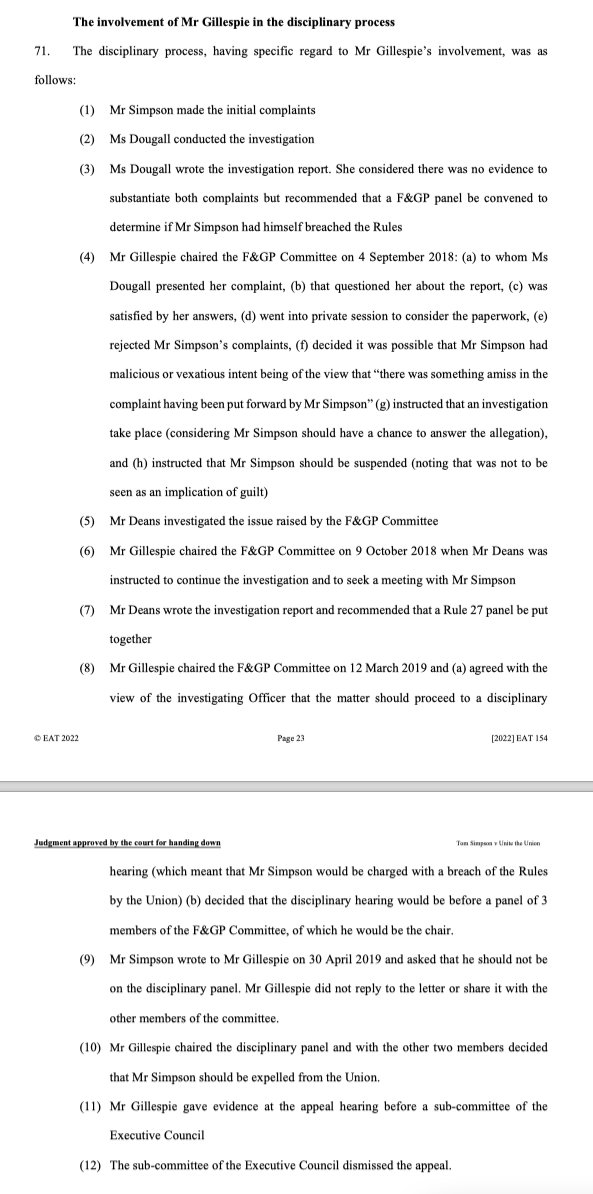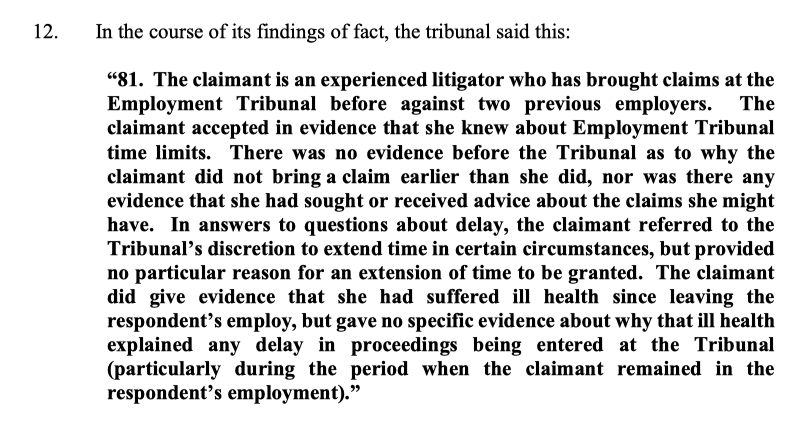
1/ Bathgate v Technip UK: 𝗔 𝗿𝗲𝗮𝗹 𝗰𝗮𝘁 𝗮𝗺𝗼𝗻𝗴 𝘁𝗵𝗲 𝗽𝗶𝗴𝗲𝗼𝗻𝘀 𝗷𝘂𝗱𝗴𝗺𝗲𝗻𝘁: EAT holds a settlement agreement can't settle EqA claims which haven't yet arisen, but is restricted to complaints known to the parties at the time of settling.
#ukemplaw
#ukemplaw
2/ B was a chief officer on a number of vessels. He accepted voluntary redundancy on an enhanced basis & signed a settlement agreement including the following term covering the claims settled: 

3/ The enhanced redundancy included an additional payment, but subsequent to B signing & terminating his employment the terms were set such that it was only due to those under aged 61. B sought to bring an age discrimination claim as a result.
4/ When B sought to bring an age discrim claim, the ET held it was covered by the settlement agreement. However, the EAT disagreed. Its disagreement focuses on the wording of s.147(3) EqA, especially the requirement the agreement relates to the particular complaint: 
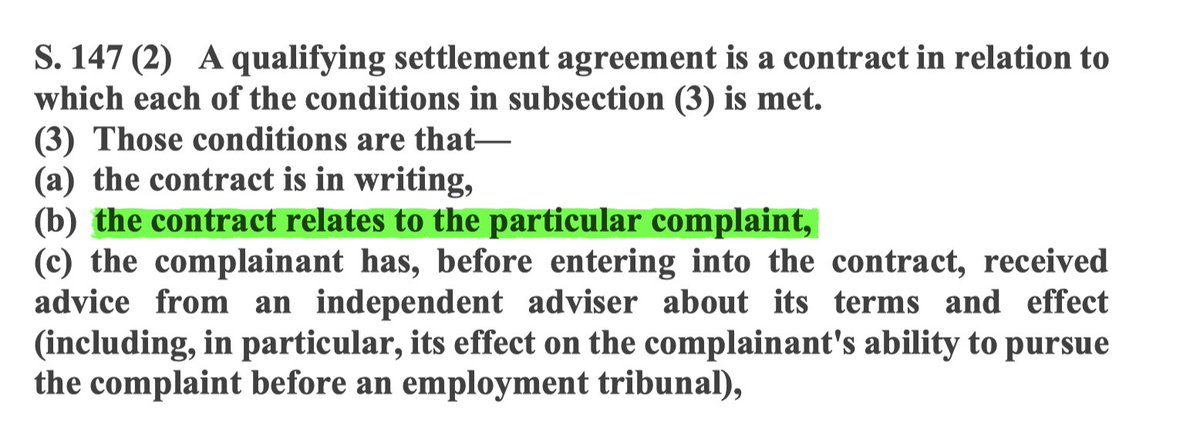
5/ In my experience, it's pretty much standard practice to list & settle all possible species of ET claim, irrespective of their lack of connection to the matter resulting in the need for a settlement agreement.
6/ It's often the case also that employers seek to add in wording that settles not only claims past but any future claim, irrespective of the fact that they couldn't yet be anticipated. Sometimes that's sensible & sometimes it would be foolish to sign up to this.
7/ Case law has long held that it's acceptable to list all species of existing claims & settle them as if they might exist at the point of settlement. It's also been possible to settle future claims, so long as the clearest of language is used. 


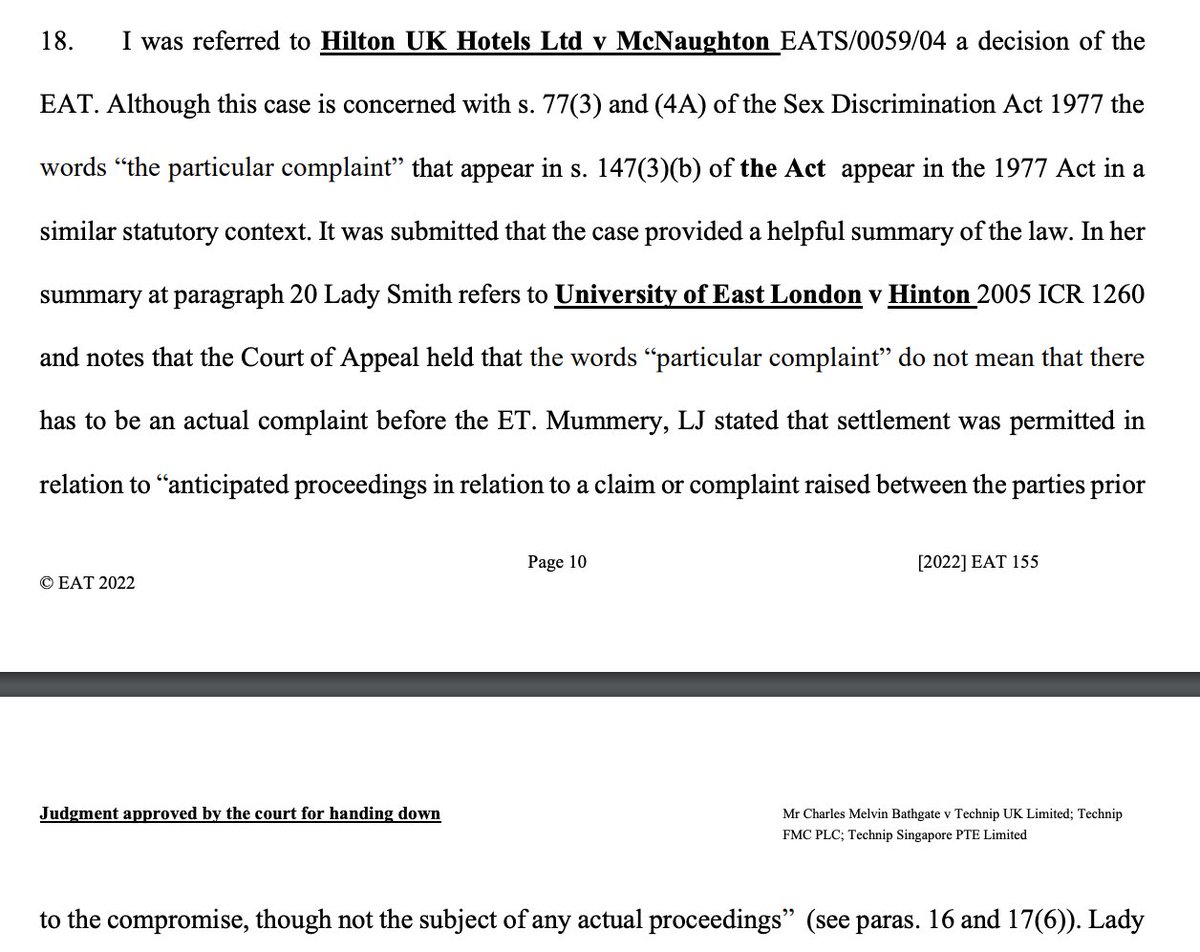
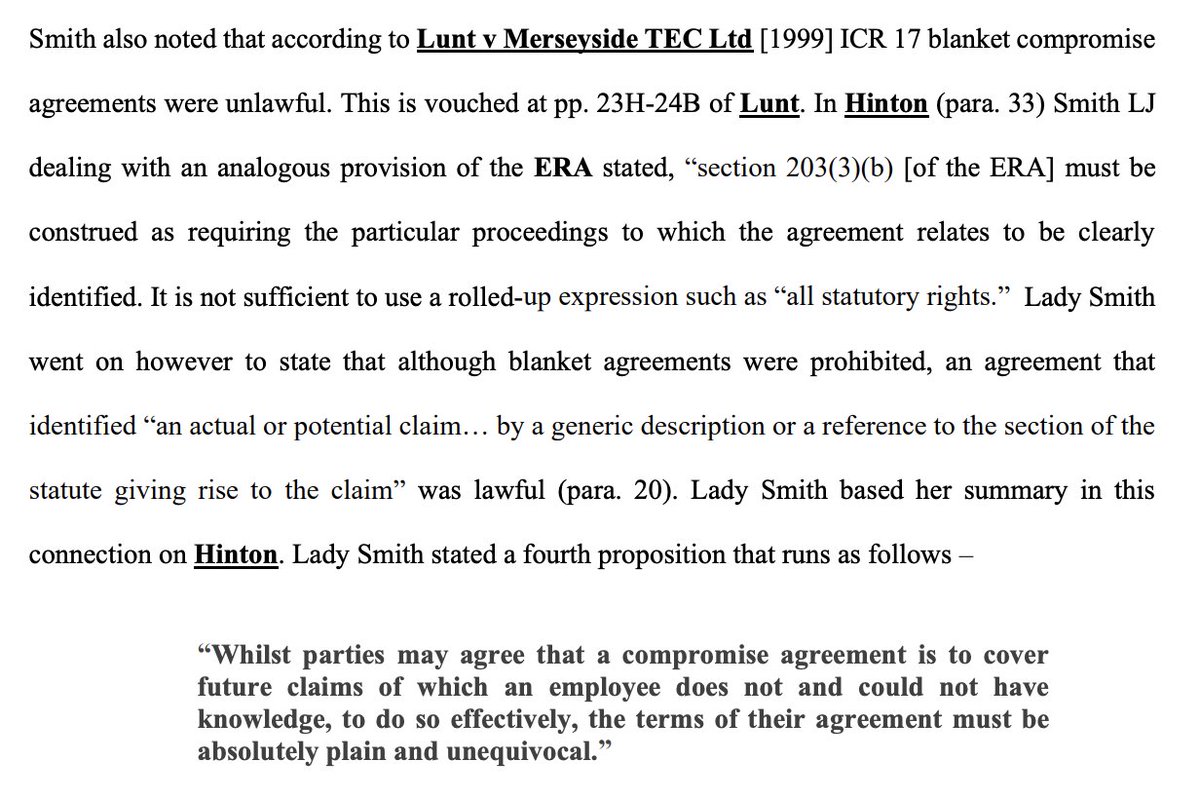

8/ Lord Summers noted, however, that the context of Hinton was 1 where H sought to bring a s.47B ERA claim, & the settlement agreement erroneously didn't mention that provision in its terms. He thus held Hinton only authority that a known complaint can be settled.
9/ Lord Summers was attracted to a restrictive construction of the 'particular complaint', consistent with comments made in Parliament in taking through the equivalent section to EqA s.147 under the ERA (s.203): 

10/ Lord Summers determined that the statutory wording precludes both (a) a list of types of complaint, & (b) potential future complaints. Settlement can only be of either an actual existing complaint or 1 where the grounds for complaint existed when settling. 

11/ The EAT went on to consider a cross-appeal concerned with whether B was disentitled from bringing a Pt V EqA claim due to provisions relating to seafarers. It's a bit too niche for a thread so I won't delve into it. The EAT held he didn't have the right to bring the claim.
12/ However, it may well be crucial in this case to a point of wider interest - namely whether the employer appeals further. The cross-appeal has achieved the employer's aim: B isn't entitled to bring his claim. It's unlikely to appeal the s.147 decision as a result unless...
13/ ...B appeals the decision on the seafarer status cross-appeal.
I hope B does so, as it would be unfortunate to leave untouched by the CA the EAT judgment on what can be settled given (a) the discarded authority going the other way, & (b) the digression from common practice.
I hope B does so, as it would be unfortunate to leave untouched by the CA the EAT judgment on what can be settled given (a) the discarded authority going the other way, & (b) the digression from common practice.
14/ Whilst there are good strategic reasons for claimant solicitors to discourage settlement of wider claims, there's often a compelling commercial reality to the employer wanting the peace of mind that there is no comeback. This decision makes repeat litigation more likely.
15/ Whilst it's important to protect the claimant's interests, the breadth of what is settled at the end of a relationship can always be reflected in the price for settlement. Often the cleanest of breaks makes the greatest of sense.
16/ We will see what happens in due course, but here's the judgment for those who've got to the end of this thread: assets.publishing.service.gov.uk/media/63406062…
#ukemplaw
#ukemplaw
• • •
Missing some Tweet in this thread? You can try to
force a refresh


